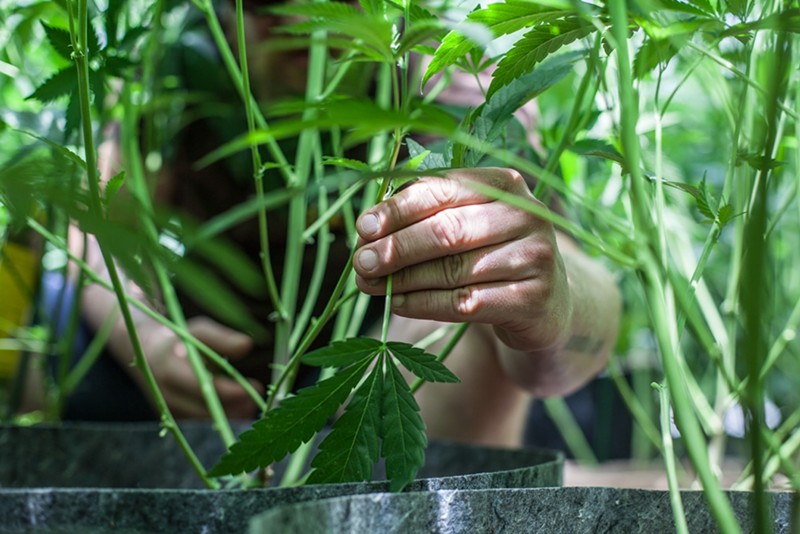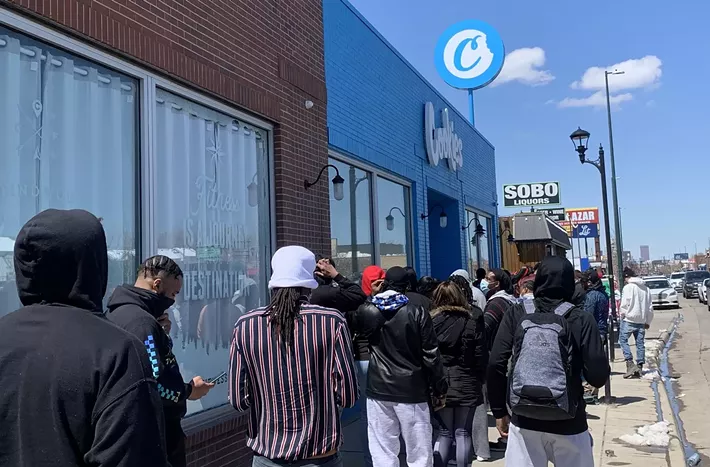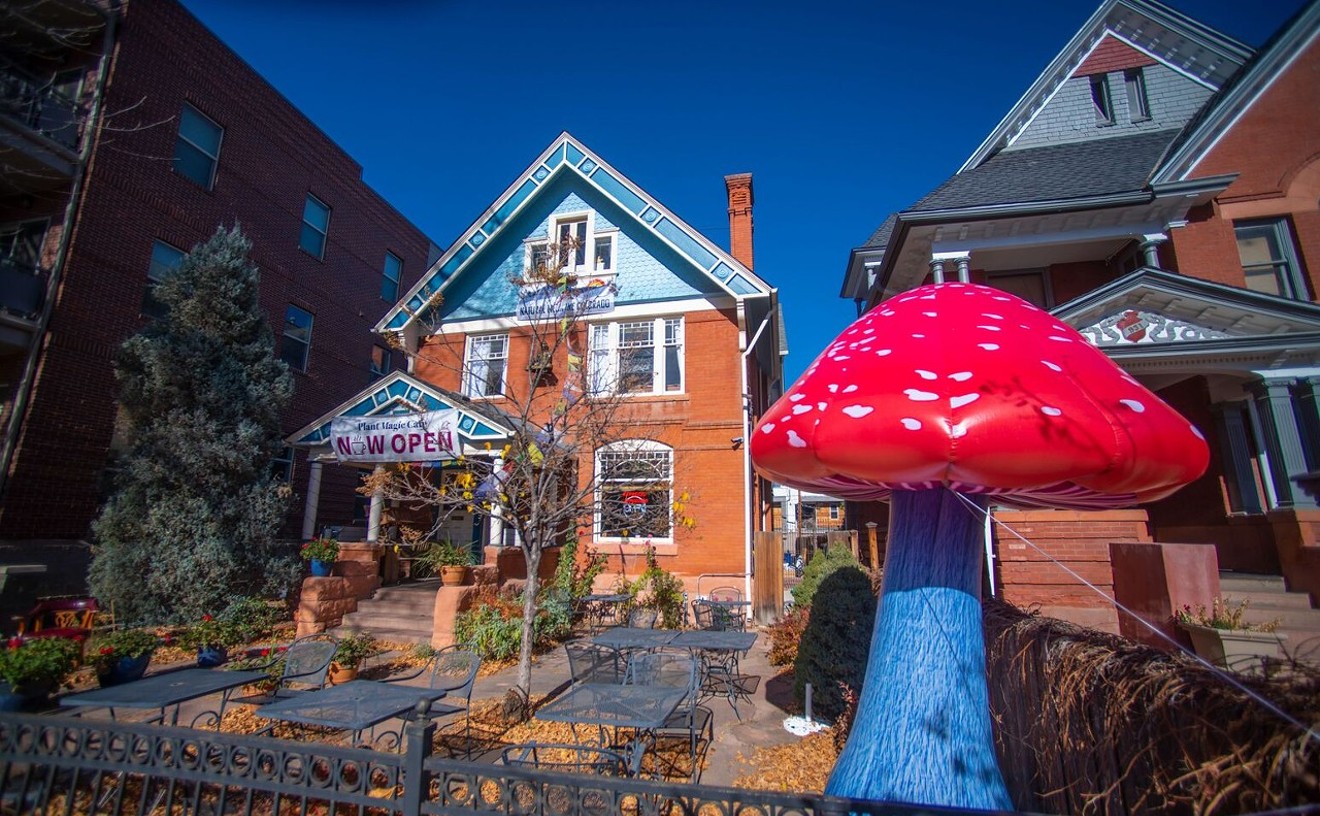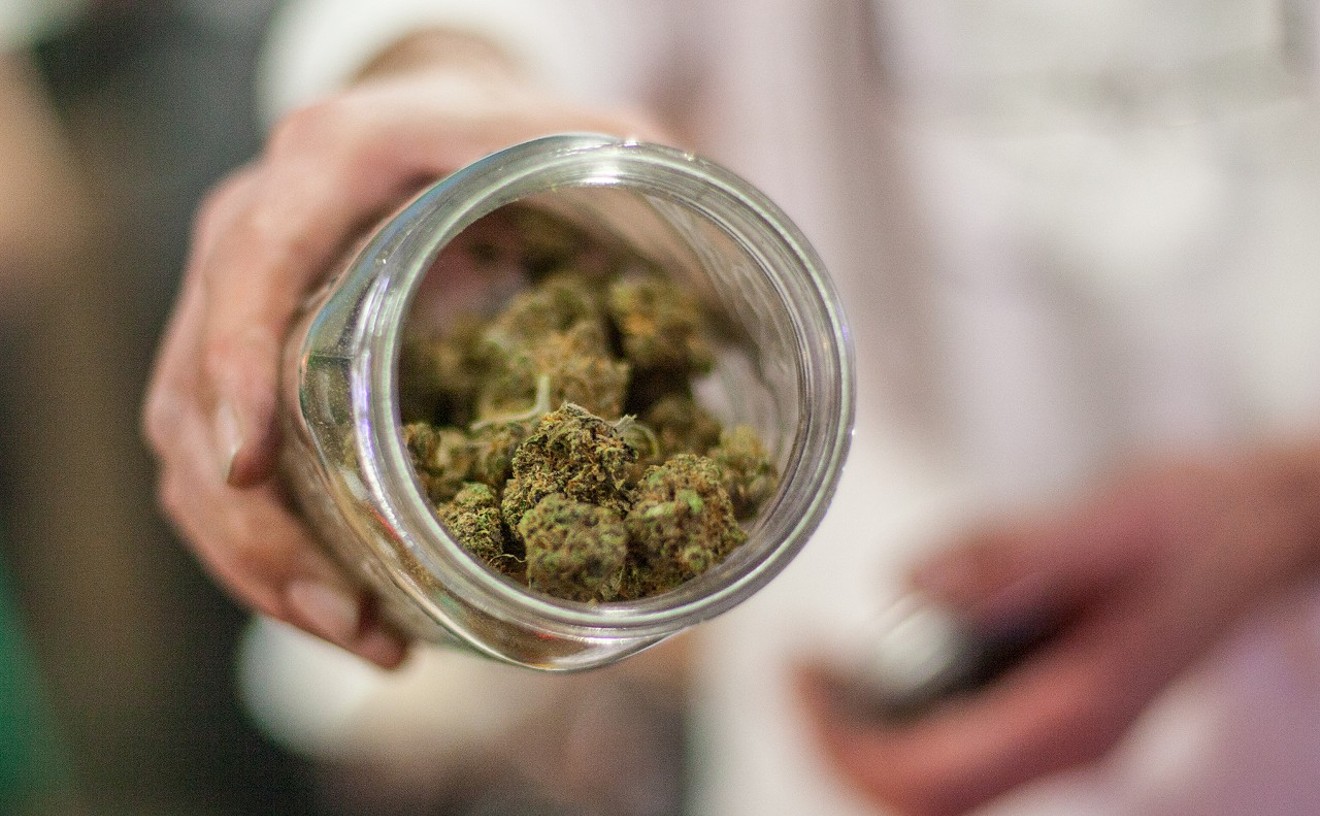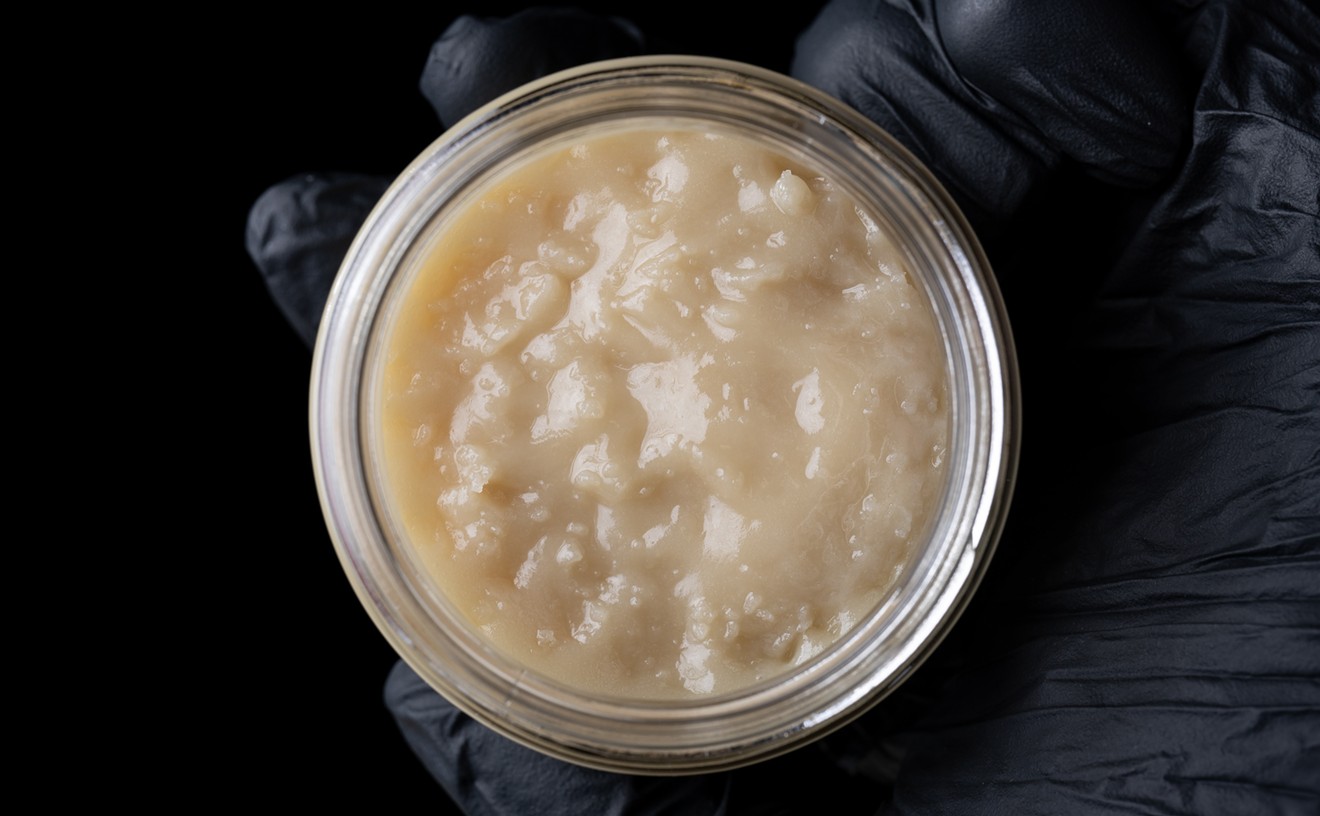Restricted Access
Medical marijuana patients saw a major setback this spring after House Bill 1317 passed the State Legislature via vast majority. Proposed as an attempt to curb youth use of extracted marijuana products, according to bill sponsors, the measure will add new restrictions to medical marijauna patients, physicians and marijuana concentrate sales, but advocates for the plant wonder how necessary they are. Starting in 2022, medical marijuana physicians will have to provide a THC dosage amount and recommend to a patient's medical card, with patients limited in their purchasing outside of those recommendations. The law also cuts down allowable medical marijuana concentrate purchasing amounts, mandates mental health reviews for prospective patients under the age of 21, and requires that all dispensary purchases made by patients be entered into a new state tracking system.
Medical marijuana patients felt scapegoated in a debate over commercial pot potency by the recreational industry, which largely supported HB 1317 after an even more conservative bill draft surfaced in February calling for a 35 percent THC limit on most commercial marijuana products. A nineteen-year-old patient has even sued Governor Jared Polis for signing the bill, but the new law is going forward as the case remains in court.
Outside Takeovers
Consolidation within the marijuana industry was one of our biggest stories of 2020, and still is this year — but now the bigger fish have arrived. After largely seeing Colorado-on-Colorado acquisitions in the marijuana space last year, we're now seeing publicly traded corporations from other states and countries move in, and they're gobbling up some of our biggest players. In June, Medicine Man, a network of four dispensaries in the Denver area, agreed to be purchased by Columbia Care (the same New York-based pubco that now owns the Green Solution), giving Columbia Care 25 marijuana stores in Colorado alone and around seventy dispensaries across the country. Later this summer, Green Dragon, with fifteen stores in Colorado and two in Florida, announced it had agreed to an acquisition offer from Eaze, a privately held pot delivery service in California.
LivWell, one of the largest vertically integrated marijuana businesses in Colorado, announced in October it had agreed to an acquisition offer from Chicago-based PharmaCann Inc., self-described as the “nation’s largest privately held and vertically integrated cannabis company.” Days later, Boulder’s Wana Brands, one of North America’s largest edibles brands, agreed to be bought by Canadian-based Canopy Growth, a Canadian cannabis corporation. Looks like there are some new kids on the block, but now they're adults with much deeper pockets.
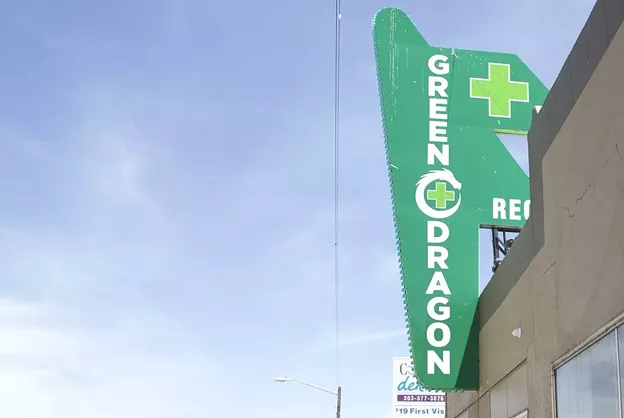
Green Dragon agreed to an acquisition offer in August from Eaze, a privately held pot delivery service in California.
Scott Lentz
Denver overhauled some of the city's marijuana licensing rules this year, and for once, it was hardly controversial. Local bills proposing marijuana delivery, hospitality and licensing programs unanimously passed the Denver City Council April 19, and were signed by Mayor Michael Hancock on April 20 (nice). The new rules opened Denver up to legal marijuana delivery and looser hospitality rules, and implimented a social equity requirement for new marijuana business owners intended to diversify the city's pot industry. The new hospitality program just began accepting applications in program, with hopes it will bear more fruit than the one lounge that was able to remain open under Denver's previous social pot consumption rules. Delivery is already off to a slow start, however, and city officials continue holding seminars and networking sessions to spur more social equity partnerships and business participation.
Slow Delivery
This was supposed to be the year that pot delivery took off, but it's hardly moved past the starting line. Aurora approved recreational marijuana delivery late last year, Denver opted into the business practice in April, and tech companies and established delivery service apps have been sniffing around since 2019. Local rules in Aurora and Denver, still the only two major cities allowing recreational pot delivery, mandate that dispensary licensees must involve business owners from communities that were harmed by the drug war, promoted as a way for budding entrepreneurs to enter the marijuana industry, and both cities were receiving interested social equity applicants.
But dispensary and consumer interest has accelerated slowly. According to Denver-area delivery service operators, most of them are receiving a lot of nibbles but no bites, as less than twenty dispensaries between the two cities have obtained their delivery licenses. It's still too early to see if these new delivery business owners were sold a pipe dream, but hopefully the wheels get moving in 2022.
Coloradans Reject Marijuana Taxes
Dispensary prices seemed poised for an increase as the November 2 election neared, with ballot initiatives aimed at raising recreational marijauna sales taxes at the state level and in several Colorado cities, including Denver, where the overall tax on recreational marijuana purchases is currently over 26 percent. The biggest battle was Proposition 119, a statewide ballot question asking for a 5 percent increase in marijuana sales taxes to help fund a new out-of-school education program. The confusion of how marijuana sales taxes are allocated and pre-legalization promises of an improved education budget seemed like natural ingredients for a Prop 119 win during an off-year election, especially for voters who don't use marijuana. However, questions over Prop 119's true intentions and lack of commitment to free and public education programs led to a late push against the measure, which was ultimately rejected on election night. Measures proposing local sales tax increases on recreational marijauna also failed in Denver and Lakewood the same night.
New Towns to the Party
Six Colorado towns voted on allowing recreational marijuana sales in November, with three of those efforts eventually successful — but not without a little drama. Lamar approved recreational sales on election night, but Golden's recreational sales initiative was close enough to take weeks before securing victory, and a sales initiative in Wellington took nearly a month after ultimately winning by a single vote. Brighton and Mead voters also rejected marijuana sales initiatives, and so did Westminster...sort of. Westminster voters approved a ballot question proposing recreational pot sales, but under the language crafted by Westminster City Council, pot shops could only come to town if voters approved a separate measure creating a special sales tax of 5 percent on pot sales. They did not.
All of that was just in November, by the way. Seven months earlier, voters in Grand Junction opted into recreational marijuana sales, paving way for what could be western Colorado's largest marijuana market.
4/20 Lines
Seeing lines out the door at dispensaries on April 20, marijuana's unofficial holiday, is nothing unusual in Denver, but this year's wait felt more like a stoner's odyssey. Not only were social distancing measures still in place, a large portion of stores were experiencing serious lagging at the cash register, and it wasn't a chatty budtender's fault. Flowhub, a major provider of point-of-sale systems for the marijuana industry, experienced technical difficulties and even shut down for an extended period of time early in the day at stores across town, leading to customer complaints on social media and even longer lines than usual as dispensary employees were forced to conduct transactions on paper. Flowhub eventually got back up and running, and the traffic never subsided: Colorado dispensaries selling over $206.3 million worth of marijuana products in April 2022, nearly 30 percent more than what they made in April 2020.
Leveling Out
After a bumpy but very successful 2020 that eventually set record-breaking sales numbers, Colorado's marijuana industry continued that hot run into 2021. And although all heaters die out eventually, this cool-down is starting to get chilly. Monthly dispensary sales began dropping on annual basis in June for the first time in seven years, and that dip in traffic continued through the end of the year. Wholesale prices are falling fast with the sales decline, according to the state Department of Revenue, and state budget predictions expect decreasing marijuana revenue continuing into 2023. Marijuana business owners say they were prepared for this, however, with the majority of dispensary and cultivation management viewing 2020 and 2021 as outlier years because of COVID-19's impact. The virus doesn't appear to be going away any time soon, so 2022 could be another unpredictable ride.
Delta-8
Chemically different from Delta-9 THC — the form of THC largely produced in cannabis — yet still intoxicating, modified cannabinoids like Delta-8 THC aren't explicitly outlawed by the Controlled Substances Act. The compound exists in small amounts naturally in cannabis, but can also be derived from industrial hemp, a plant now legally grown at the federal level. (This is done by extracting CBD from industrial hemp and then converting the CBD into forms of THC with acetic acid.) The loopholes have produced an intoxicating product found on the shelves of convenience stores, smoke shops and e-commerce sites, and regulators were slow to catch up as surplus CBD left over from 2019 was quickly converted into Delta-8 products and sold. Although Colorado dispensaries can't sell Delta-8 products, you can still find them online and in certain retailers. Delta-8 has divided the hemp and CBD industries between those in it for the long haul and bold carnival barkers interested in a quick buck, so just wait until people in non-legal states discover Delta-10 THC, THC-O and whatever other forms of THC chemists are coming up with to avoid the feds.
Amazon
In a June 1 announcement posted in the bowels of a website owned by Amazon that publishes news about Amazon (no, not the Washington Post), the company announced that United States employees would no longer be screened for marijuana during drug tests. Not only that, but Amazon also announced it would begin lobbying the government to legalize the plant at the federal level. Both of those developments are for national new, but Amazon now has over 10,500 employees in Colorado who don't need to worry about a joint they hit at Red Rocks last weekend, and if the tech and retail behemoth ever makes a play into the cannabis industry after federal legalization, that would undoubtedly affect Colorado's homegrown marijuana market in ways only a macroeconomist or conspiracy-ranting pothead could imagine.

